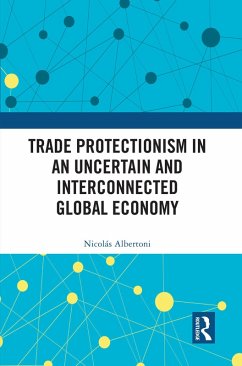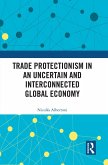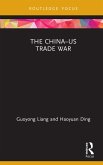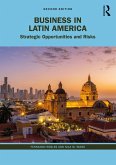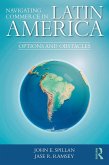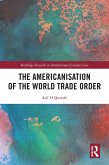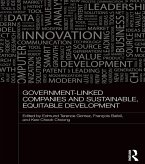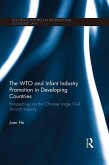Dieser Download kann aus rechtlichen Gründen nur mit Rechnungsadresse in A, B, BG, CY, CZ, D, DK, EW, E, FIN, F, GR, HR, H, IRL, I, LT, L, LR, M, NL, PL, P, R, S, SLO, SK ausgeliefert werden.
Hinweis: Dieser Artikel kann nur an eine deutsche Lieferadresse ausgeliefert werden.
Marcelo Olarreaga, Professor of Economics, University of Geneva, Switzerland
"This study is an extraordinary balance between the contribution to the literature and the practice of trade policy. It gathers new evidence on a key issue: the risk of protectionism through non-tariff measures in an inevitably interdependent world. It is a bold investigation that persists in the urgency of continuing to deepen trade integration based on pillars that promote transparency and encourage those responsible and scholars of trade policy to advance in this regard."
Andrés Rebolledo, Former Minister of Energy of Chile (2016-2018); President of Chile's National Oil Company; Vice Minister of International Economic Relations of Chile
"Since the Treaty of Westphalia, States are entities that, as Lord Palmerston said, have no friends, but permanent interests. Therefore, integration has been and is a response to the global geopolitics that modernity poses. The contribution of Nicolás Albertoni (colleague from USC) is realistic and courageous. He shows that protectionist regulations are aimed at neutralizing the trade openness that the fall in tariffs deepens. A book that, in my opinion, takes into account without saying so the four demons that coexist with integration: ideology, asymmetry, autarky and hypocrisy. For this reason, his proposal is challenging and opportune, not only for the academy, but for politicians, diplomats, businessmen, workers and especially students. An excellent synthesis of professional seriousness and political maturity."
Sergio Abreu, Secretary General of the Latin American Integration Association; Former Minister of Foreign Relations of Uruguay (1993-1995)

